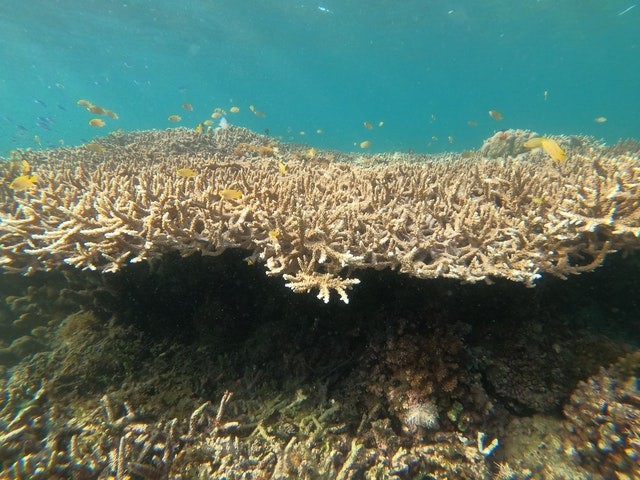New analysis from a recently published study summarizes over a century of sea-surface temperature history in the entire Greater Caribbean region, emphasizing substantial warming trends that have disrupted coral reef ecosystems.
As specified in a Latest LY report, on top of heating the atmosphere, climate change caused by human activity is heating the oceans of the world, disrupting marine ecosystems.
Colleen Bove from the University of North Carolina at Chapel Hill, together with colleagues presented the study findings in an open-access journal early this week.
A previous study has documented intense warming-induced changes to coral reef ecosystems globally, and in the Caribbean, in particular, determining such impacts as mass coral mortality through coral bleaching and loss of reef-reliant fish.
ALSO READ : Why Coral Reefs Turn White? Science Explains

Over 5,000 Caribbean Coral Reefs Developed in Database
Building on a previous study, Bove and his colleagues have now carried out an updated assessment of sea-surface temperature trends for Caribbean coral reefs.
This initially developed a database of about 5,326 Caribbean coral reefs, each found in one of eight sub-regions. Then, they employed three open-access datasets of satellite and on-site sea-surface temperature observations to examine the history of warming from 1871 until 2020.
Analysis from the study published in PLOS Climate revealed that throughout the region, Caribbean coral reefs have been warming since 1915. Nevertheless, in four out of eight sub-regions, warming started earlier during the second half of the 19th Century.
The study investigators discovered that Caribbean reefs were warmed by a total of 0.5 to one degrees Celsius in the past 100 years, with different sub-regions encountering different rates of warming from each other over time.
Warming for 100 Years
The data proposed that, if warming carries on in a similar way, these ecosystems will warm more by an average of roughly 1.5 degrees Celsius by the year 2100, a related ScienceDaily report specified.
Moreover, the analysis examined the occurrence of marine heatwaves, as well, brief periods of typically high ocean temperatures. As a result, the research team discovered that the length and frequency of these occurrences are rising throughout the Caribbean, with reefs now encountering an average of five each year, up from one each year in the 1980s.
Based on their findings, as well as on other research, the study investigators have called for an urgent decline of greenhouse gas emissions, as well as initiatives to address local and regional stressors of coral reef ecosystems like fishing and pollution, in the Caribbean and outside it.
The research team added, their study specifies that coral reefs have been warming for at least 100 years and many reefs throughout the Caribbean have already warmed by a degree Celsius. This explains the reason there have been such devastating drops in the health of this priceless ecosystem.
Essentially, coral reefs are among the most diverse ecosystems all over the world. Coral polyps, in particular, the animals mainly accountable for building reefs, can take various forms such as graceful glowing fans, large reef-building colonies, and even tiny, solitary organisms.
Related information about rising ocean temperature affecting coral reefs is shown on National Geographic's YouTube video below:
RELATED ARTICLE : Scientists Witness the 'Best Coral Spawning Event' on the Great Barrier Reef, Hope for 'Recovery and Repair' in Marine Organisms
Check out more news and information on Coral Reefs in Science Times.
© 2026 ScienceTimes.com All rights reserved. Do not reproduce without permission. The window to the world of Science Times.










